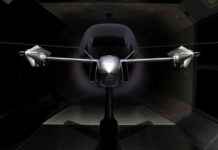Royal Caribbean Group is set to achieve perfection once again with the announcement of their new private destination, Perfect Day Mexico, adjacent to the Costa Maya cruise port. This new addition, expected to open in 2027, will follow the success of the company’s signature Perfect Day at CocoCay private island destination in the Bahamas.
The decision to expand and create Perfect Day Mexico was a strategic move by Royal Caribbean Group to cater to both the eastern and western Caribbean markets. By tapping into the Gulf Coast and the Texas market, the company aims to attract more cruisers and enhance their overall cruising experience. With the new terminal opened in Galveston, Texas, accessibility to the private destination will be made easier.
Vicki Freed, senior vice president of sales for Royal Caribbean International, emphasized that Perfect Day Mexico will offer a unique experience compared to Perfect Day at CocoCay. Just like sister vessels within a ship class, each destination will have its own set of features and attractions. The new location in Mahahual, Mexico, will be twice the size of CocoCay, promising to deliver an unforgettable experience to guests.
The success of Perfect Day at CocoCay has been a driving force behind Royal Caribbean Group’s decision to expand its private destinations. With its high net promoter score, CocoCay has become a fan-favorite among guests, leading to increased demand for the Royal Caribbean International brand. The company’s future plans include the introduction of Royal Beach Clubs in Nassau and Cozumel, offering guests an optional attraction for a fee.
Travel advisors have noted the popularity of Perfect Day destinations among clients, with many specifically requesting itineraries that include these private islands. By continuously adding new features and attractions, Royal keeps its destinations fresh and exciting for guests. The evolution of ship deployments, such as adding short cruises to the island on newer ships, has also contributed to attracting new cruisers and millennials.
Looking ahead, the introduction of Perfect Day Mexico is expected to bring a new level of excitement and adventure to Royal Caribbean’s private destination portfolio. With its strategic location and unique offerings, the company aims to provide guests with an unparalleled experience that combines thrills and relaxation in a picturesque setting. As Royal Caribbean Group continues to innovate and expand, the future of cruising looks brighter than ever.
















